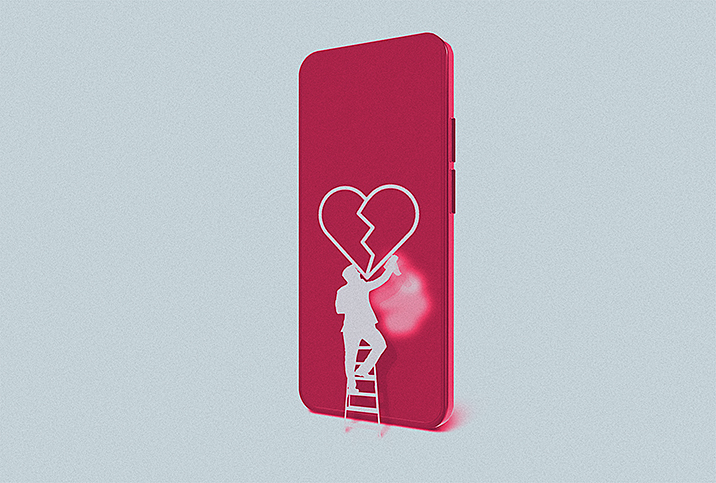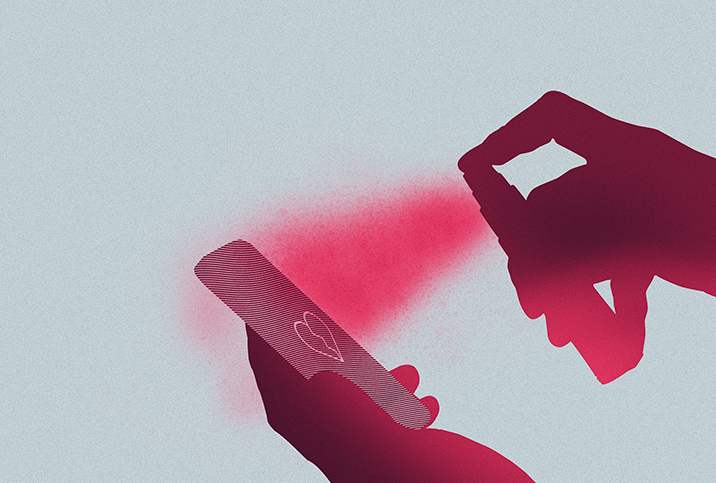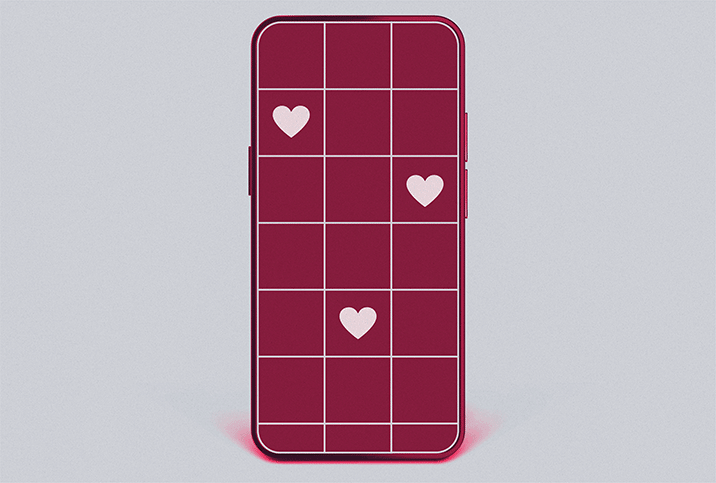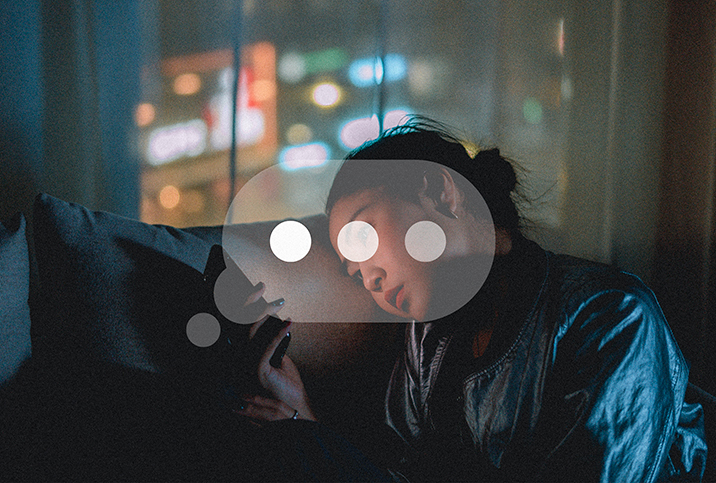Sanitize Your Online Profile After a Breakup

Breakups aren't easy for anyone, whether you're cooling things off after a few months or emerging solo from a long-term relationship. Everyone has their own strategy for coping and learning to heal in their new normal. In most cases, this means making a clean break so you can officially move on.
In the age of social media, you can find yourself confronted with your ex and their social circle whichever way you turn online—and that's where sanitizing comes into play.
Recent data from the pros at Plenty of Fish found more than one-third of users on the app have "sanitized" their social media after a breakup, erasing every photo of their ex in the aftermath of a split.
Clearly, the act of sanitizing your social media presence is working for a lot of people, but what do the experts think? Carly Claney, Ph.D., a Seattle-based clinical psychologist, and Michelle Webber, M.A., a Seattle-based therapist, weigh in.
What is sanitizing?
The Plenty of Fish data notes sanitizing is "the act of wiping your social media of all photographic evidence of a past relationship," but it can go even deeper if you choose to get rid of all digital evidence of your ex, including text messages, voicemails, and private photos and videos that never made it to your profiles.
Another step is to unfollow, unfriend and block your ex and any mutual connections you shared, either permanently or temporarily, as you explore life without your former partner.
How to know if sanitizing is right for you

Put plainly, if you're hoping to exact revenge on your former flame, hoping they'll notice you've "sanitized" their existence in your digital life, it may only rebound on you without actually helping you heal.
"Your actions after a breakup are about knowing yourself and what you need to best heal from the relationship that has ended," Claney said. "Focus more on thinking about what unfollowing/unfriending your ex could do for you rather than using social media to send a passive message."
However, if being reminded of them is getting in the way of the time and space you need for yourself—especially if you find yourself looking longingly at old photos, comments and updates from happier times—you might want to sanitize.
"Putting digital space between you and your ex can be a way of creating emotional space to process your feelings without the constant reminders from social media of 'what used to be,'" Webber said.
What will it feel like to start anew?
"Getting rid of digital reminders of a relationship can be cathartic," Webber continued. "In addition, the process of sorting through what to delete and what to keep can be a way of acknowledging all parts of the relationship—the bad and the good."
"Peeking in on your ex may sustain your feelings or add emotion without context, neither of which may be very helpful," Claney added. "If you're truly intent on moving on—whether because the relationship had an unhealthy dynamic or because there's no hope of rekindling your ex's fire for you—constantly 'eavesdropping' on your ex online can funnel valuable energy away from [yourself]. And that's energy you could spend improving yourself. It also may take up space and time you could be using to make room for a new relationship, if that's what you want."
When to get started

There's no right or wrong amount of time to heal from a breakup, so be sure sanitizing feels authentic to your current headspace and serves as a positive step toward recovery and growth—it doesn't need to be a digital brushfire filled with anger and resentment toward your ex.
"There may be a temptation to cast the relationship as all bad once it is over and rid yourself of any reminder of it. But this may not be necessary or true," Claney said. "Take your time when making decisions about who and what to vanquish from your social media world. It's possible you've developed some genuine connections with others associated with your ex who might be worth keeping. You can always mute certain people as an experiment before taking the next step toward unfollowing/blocking."
It's true blocking, unfollowing and unfriending can feel permanent and possibly make for awkward moments in the future. Keep things temporarily under wraps in case your feelings about your ex or those in their circle change over time, as then it'll be easier to reopen doors.
When you should not sanitize, and what to do instead
"It's tempting to [believe] that if you can successfully erase someone's digital presence, you've automatically erased any negative memories that go along with the relationship and/or the ending of it," Webber said. "While this is, of course, your decision, it's probably healthier emotionally to spend the time truly feeling the anger and sadness that often go along with breakups. Working through all those emotions may get you further than eliminating online evidence of your relationship."
Spending time with friends and family, talking with a therapist and reconnecting to things that bring you joy outside of your relationship are perfect ways to help acknowledge your feelings and get back in touch with yourself. This may seem like a "Mission Impossible" storyline, but Claney and Webber suggest taking a break from social media altogether.
"Especially after a breakup, [this] can help you reset and refocus on yourself and what's important to you, without the distraction of social noise," Claney said. "It can also be a commitment for you to engage in your present experience."
Should you never refollow?
We all should be chorusing "never say never," but what happens if, someday in the future, you want to bridge that digital gap again?
"Think about your intention for re-following your ex and be honest: What are you hoping to gain?" Webber said. "If you are truly interested in maintaining a genuine, nonromantic relationship with this person, maybe you're ready. I should add, though, if this is a way of satisfying the urge to see who they're spending time with or trying to communicate a message with your actions, maybe you could use a little more time."


















